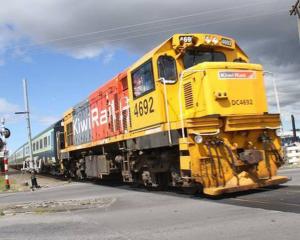The New Zealand Racing Board denies its nationwide drive to establish standalone TABs stocked with pokie machines is an attempt to divert gaming funds to a struggling racing industry.
In recent years the board has closed down independent TAB outlets in favour of pub-based agencies, but it was now returning to the old model, rolling out about four new standalone TABs a year, costing $250,000 each.
Many towns and cities have gambling bylaws prohibiting the placement of pokie machines in standalone venues.
On Tuesday, the TAB made a 17-page submission on the Grey District Council's 2010-11 annual plan, seeking an amendment to enable TAB venues to host gaming machines.
The council agreed in principle, with any change subject to public consultation.
Board solicitor Jarrod True said the move to standalone TABs was partly because there was a proven link between alcohol and problem gambling. The TAB was acting responsibly by moving away from pub-based agencies.
He told the Greymouth Star today 20 of the board's 100 standalone venues already hosted pokie machines, and the TAB had no control over the distribution of the proceeds.
"The machines usually belong to the big trusts like the Lion Foundation and they distribute the proceeds. We have no say whatsoever in where the funding goes."
The application to the council was aimed more at getting consistency throughout New Zealand, he said.
Bowls West Coast centre secretary Frank Lucas was sceptical of that claim.
"If they are not getting anything from it, why do it? I have genuine concerns that funding for sport in general might dry up if every town in New Zealand has a standalone TAB full of pokie machines."
The Problem Gambling Foundation was also sceptical and opposed the creation of more venues, especially on the West Coast, which its spokesman Tony Milne said already had "appalling" gambling statistics.
Mr Milne said research showed that the people using the pokies were those who could least afford it, and the government paid in the long run because pokie users, having extinguished their funds, relied on service organisations to get by.












